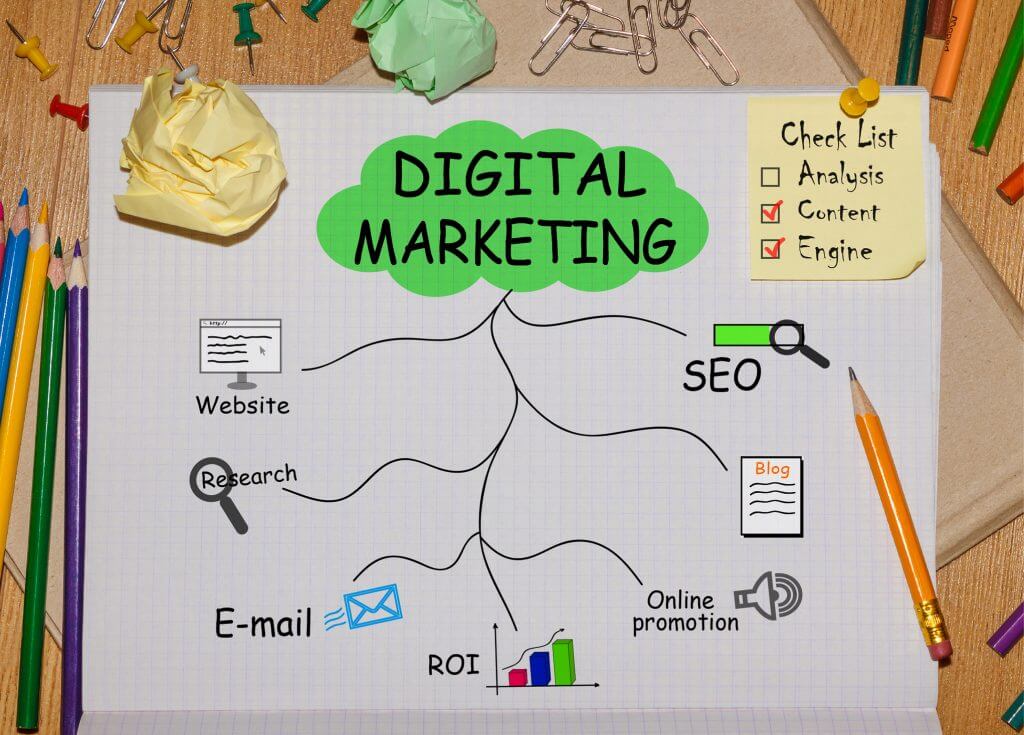A successful digital marketing campaign is a trackable digital marketing campaign.
What does this mean? No matter what your company's goals are, it's critical to have a digital marketing strategy that relies on metrics and key performance indicators (KPIs). KPIs can help you measure performance, identify goals and targets, and get to those goals in the best way possible.
It's important to use KPIs carefully to maximize your digital marketing ROI. Take a look at these key steps in doing so. You'll be astounded at how a solid use of KPIs will pay off in all aspects of your marketing campaign.
How to Use KPIs to Maximize Digital Marketing ROI
1. Identify your goals and how you want to measure them.
Chances are, if you're already thinking in terms of KPI and ROI, you've got a solid digital marketing strategy. Awesome! Now it's time to take that same line of thinking and apply it to your use of KPIs.
Identify clear, attainable, and measurable goals. The more specific you are, the better. This is absolutely essential in determining what KPIs you'll incorporate because the right KPI should go hand in hand with your company's marketing objective–and impact it directly.
At the end of the day, you want to measure what's going to matter.
Think about it this way. If your company goal is to increase the number of retained customers, you'll want to be able to measure current customer retention. If your goal as a business is to expand customer base from a certain demographic, you'll want to measure your current customer base from that demographic.
Growth and ROI are a result of proper measurement of key factors. Proper measurement comes from clear identification of company goals!
2. Choose your KPIs wisely.
Let's face it. There are so many KPIs out there. It can get overwhelming. But don't let it!
Choose KPIs that coincide with your business objective, whatever it may be. These should directly measure the results you'd like to work from and help you anticipate the results you're aiming for.
When it comes to digital marketing, KPIs abound. If your goal is to increase awareness of your brand or product, consider a brand awareness metric KPI. If you're working towards greater customer retention, think about a returning visitor metric KPI.
Consider choosing a set of KPIs that work together. For example, you may want to rely on a keyword performance KPI, returning visitor metric, and website traffic lead ratio in order to determine the effectivity of your online presence or digital marketing campaign in gaining traffic.
This also means choosing the right amount of KPIs. Don't choose too many, or you may overwhelm your primary intention: to track and measure the performance of a specific business goal.
Choosing the right KPIs will maximize your digital marketing ROI by giving you smart, workable metrics.
3. Do what other digital marketers are doing.
There are several basic KPIs that competitive digital marketers all use as baseline metrics. Add these to your toolkit regardless of your company objectives. Or, at the very least, think about using them in the future!
Because your website is the face of your business, keeping track of your website conversion rate is critical. Additionally, because we're talking digital marketing here, it's useful to track the percent of sales achieved as a result of digital marketing.
Cost per lead and revenue per lead by source are also critical KPIs when it comes to understanding growth resulting from your digital marketing campaign.
4. Understand what's going on in real time.
It's easy to get caught up in the minutiae of KPIs and forget your ultimate objective. Bypass this by using a digital dashboard to keep track of overall performance, KPI use, and ROI.
A digital marketing dashboard incorporates whatever you want it to incorporate, but the most effective ones create a bird's eye view of web and lead generation analytics, social media activity, and new leads by month, day, or year.
5. Keep track of digital marketing trends.
2016 brought a lot of changes to the digital marketing game, and 2017 is doing the same in spades! No matter what your digital marketing strategy is, stay on top of the game by paying attention to current trends.
Even if your strategy is already maximizing ROI–and it certainly will with a healthy use of KPIs–you still want to reflect the industry's changes. Some examples include working with chatbots and other forms of AI (Artificial Intelligence), data analytics, and enhanced SEO.
6. Keep adapting your strategy based off of your KPIs.
This is an essential tip when it comes to maximizing your digital marketing ROI through KPIs. Your use of KPIs won't lead to anything unless you rely on those specific metrics to change your strategy accordingly.
KPIs are called tools for a reason. They are helpful when it comes to measuring performance and other metrics, but they are primarily there as a resource for you to discover what you need to boost ROI.
Harnessing the Power of KPIs
Tracking company performance and goals doesn't have to be difficult or even time-consuming. Using KPIs effectively means getting a solid grasp on the goals you'd like to achieve for your business and, eventually, maximizing your digital marketing ROI.
To maximize your digital marketing ROI, keep track of digital marketing trends and respond to these in your strategy. Identify what your company goals are and choose KPIs that will directly help you to track performance and goal achievement. Make sure you can consistently see your campaign in its entirety by using dashboards.
At the end of the day, you can maximize your digital marketing ROI by using KPIs to adapt your strategy to reach its gold standard.
Not sure how to move forward in the world of KPIs and ROI? No problem. We've got you covered. At Seeger Consulting, we help all business owners navigate their way to optimized growth so that you can bring the passion back into your business. Our services range from managing website content and teams to tracking metrics and revenue streams.
Contact us today to get your business on the right track, so that you can maximize your own ROI in digital marketing and beyond.

